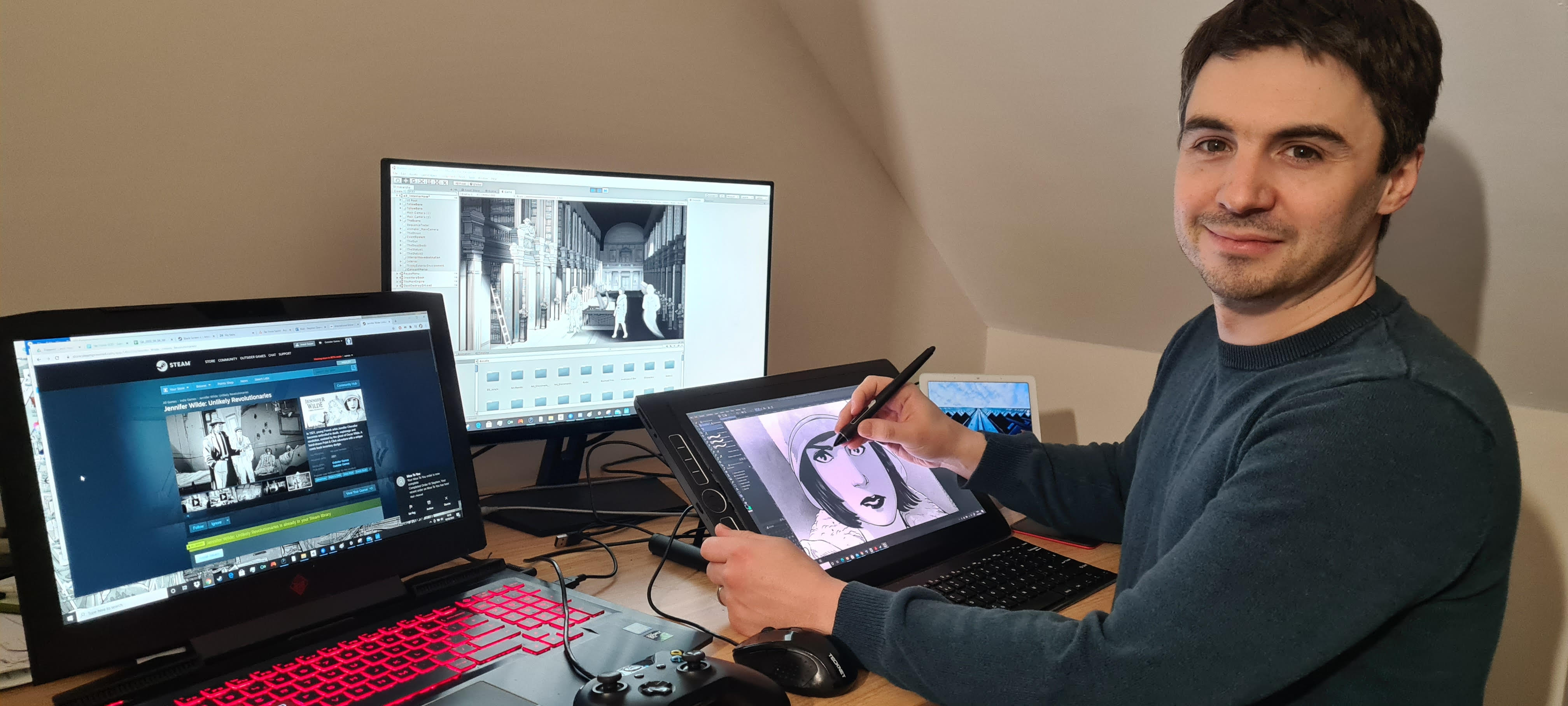
A young Gilford man is one 75 people with disabilities who have found work thanks to the STRIDE Project run by Portadown based social enterprise Usel (Ulster Supported Employment Limited).
Twenty-year-old Joshua Ryans, who has autism, found lockdown very difficult and withdrew into himself but his life has been transformed after starting work part-time for industrial cleaning company ServiceMaster in Portadown.
Joshua said: “Usel really helped me get through the pandemic. At the start I did a number of courses with them and it was very motivational. The tutors are really nice and they pushed me on. I’ve got a job now and I’m really enjoying being part of a team.”
His mum, Joanne said Joshua has made unbelievable progress since joining the STRIDE project.
“They have given him the most amazing support, boosting his confidence and self-belief. They have done much more than find him a job, they have completely changed everything for him. Joshua is doing really well, he is just loving his job and is hoping to proceed into full-time employment,” she said.
Now the family are encouraging others to try Usel’s series of free events in May aimed at supporting more people into work. The company is holding two weeks of online activities including taster sessions and mental health and wellbeing support aimed at people with disabilities or health related conditions who wish to upskill or get support so that they can seek employment.
‘STRIDE Into Work’ will offer two week-long sets of activities and workshops starting on May 10 and 17 led by Usel’s experienced STRIDE team.
Mary McCann who manages the STRIDE (Support and Training to Realise Individual Development and Employment) project which is part funded through the Northern Ireland European Social Fund Programme 2014 – 2020 and the Department for the Economy, explained that the organisation has adapted over the past year to provide remote support and learning to its participants.
“We changed our curriculum to suit the new and evolving labour market, helping people to prepare for remote interviews and increase their skills to work in growth/priority areas. We concentrated on well-being – helping to look after mental health. There was a lot of focus on resilience and overcoming anxiety and fear,” she said.
The social enterprise continued to offer this support over the lockdown, delivering 982 courses over the past 12 months, with 58% of people who completed STRIDE finding work and 21% moving into further education or other training. Many of those found jobs in areas such as domestic and care work, retail, and logistics, including deliveries and warehousing.
The STRIDE project, which is free for all participants, works with people with disabilities or health conditions who are unemployed or working less than 16 hours per week. The project is also accessible to those on furlough currently.
Mary said that many of the people referred to the STRIDE project found life during the pandemic very difficult and stressful.
“Many of the people we worked with had to isolate and found it difficult to engage online or didn’t want to think of work at first. But as lockdown progressed, people re-assessed their lives and wanted to get back into employment and wanted support to do that,” she said.
The company has offices in Belfast, Derry/Londonderry, Ballymena and Portadown but with everything moving online, they found they could reach even more people who would find it difficult attending face to face meetings.
Mary said: “Location is no longer a barrier and the number of people we can support has increased. This has been one of our most challenging years but also our most important year as an organisation. The people we support have massively improved their online and IT skills and this will be a huge benefit to them both personally and when they are seeking work.”
To find out more about the taster sessions in May, go to www.usel.co.uk



